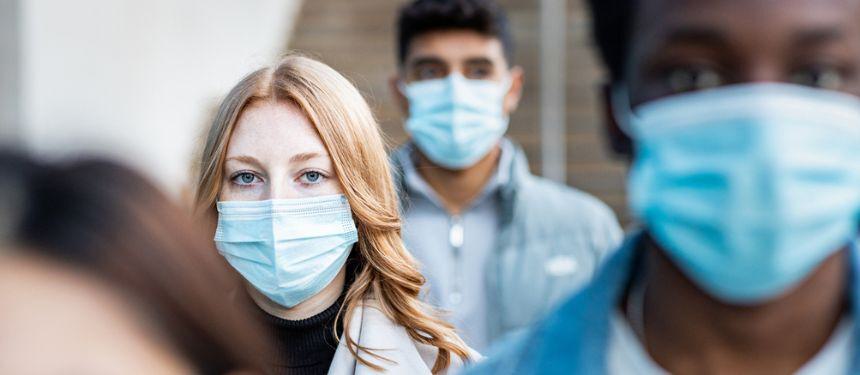Reflecting on Covid-19: Key lessons learned, 5 years on

As we approach five years since the start of the global pandemic, the challenges faced by the international medical assistance industry during COVID-19 remain unmatched.
Though the world is no longer in the grip of the pandemic, the lessons learned – from resilience to adaptability – continue to shape how we operate.
Back in 2020, when borders were closing in a domino effect and global travel was at an unprecedented low, the medical repatriation industry was pushed into unknown territory. Coordinating air ambulance transfers reached a level of complexity not seen before - aircrafts were unable to land, and new bureaucratic hurdles to jump. The complexity of these operations pushed us to find nimble, creative solutions.
At the height of the pandemic, our repatriation team worked tirelessly to coordinate over 70 medical repatriations in the first three months, spanning regions across Asia, the Middle East, Africa and beyond. Each case was highly individual, shaped by factors like patient location, nationality and relied on the capabilities of local providers. Every transfer demanded intense planning and coordination that saw 12-hour days disappear before our eyes.
With teams suddenly working remotely, we had to quickly adapt how we communicated. Daily calls became essential, allowing us to pool our team’s vast clinical and logistical expertise to manage these complex cases. We drew on our strong partnerships with our networked air ambulance providers – everyone from medical directors down, played a key role in finding solutions. On the ground, we worked closely agents and fixers, speaking to anyone who could help get an aircraft in and out of a location. Relationships grew stronger as a result.
Patients needed testing in remote locations where facilities were scarce. Positive cases required specialist isolation pods for safe transport. Intensive care admissions became even harder to secure, both in the UK and internationally. Diplomatic negotiations were often required just to gain entry into a country. Managing infectious disease on this scale reinforced the importance of collaboration - our provider network worked in lockstep with us to ensure patients could still be moved safely, despite the restrictions in place.
Not every case required an air ambulance. Where possible, we worked with our global network of providers and medical escorts to complete repatriations on the limited scheduled rescue flights arranged by the FCO. This adaptable approach helped bring patients back to the UK at a lower cost to the client.
Meanwhile, our medical desk played a vital role, managing cases remotely, liaising with medical teams worldwide, and working to facilitate repatriations wherever possible. With many patients stranded overseas, the focus shifted beyond just transport solutions. Long-term medical plans had to be put in place to safeguard patients' health while they waited for borders to reopen.
In the first three months alone, the medical team handled nearly 4,500 medical helpline calls, many driven by COVID-19. They not only had to interpret evolving UK government guidance but also navigate the varying regulations of individual clients and countries - ensuring patients received accurate, up-to-date advice in an ever-changing landscape.
While the impact of COVID-19 on air travel and medical repatriations has largely subsided, its legacy remains. The pandemic shifted how we approach challenges – it reinforced the value of flexibility, teamwork, and being proactive in finding solutions. Today, the medical assistance industry is stronger and more resilient, thanks to the lessons learned from navigating the chaos of those early days.
As we reflect on how far we’ve come, it’s clear that the challenges we faced during COVID-19 has better prepared us for the next crisis that may lie ahead. And the connections we built – with our clients, partners, and colleagues – continue to make us a better, more capable team.


